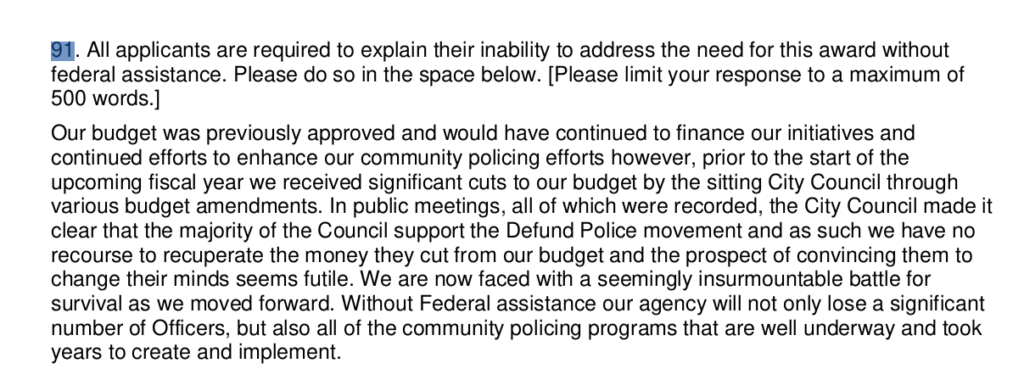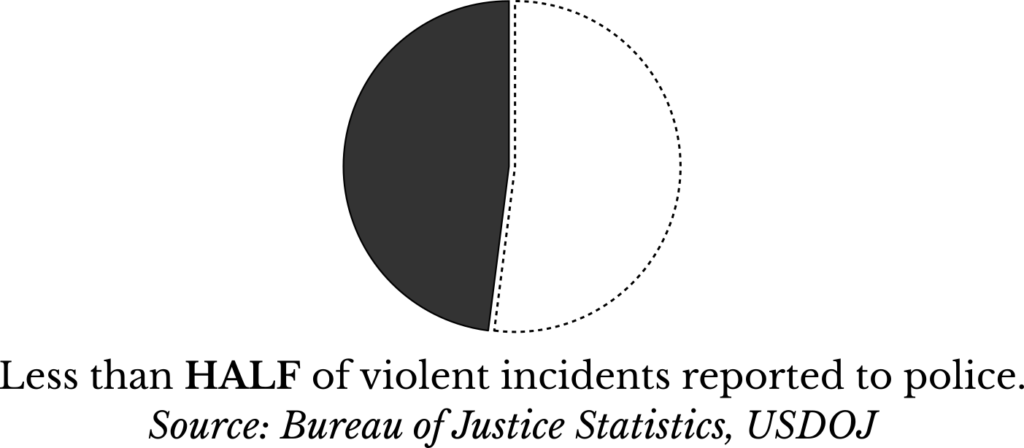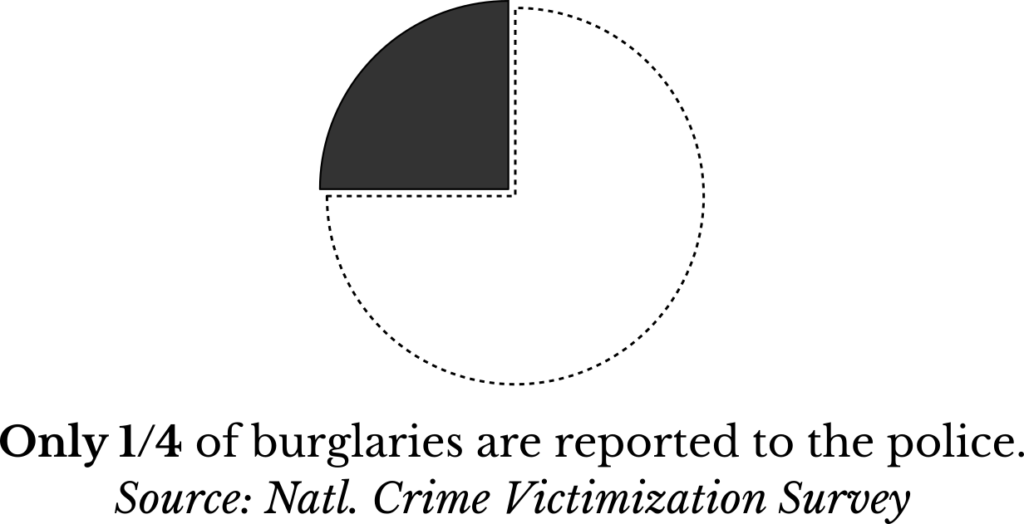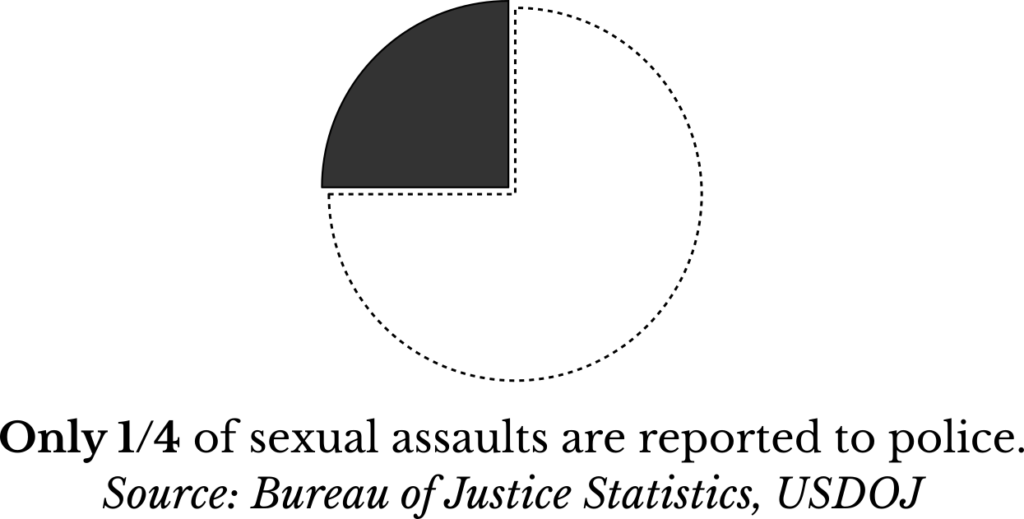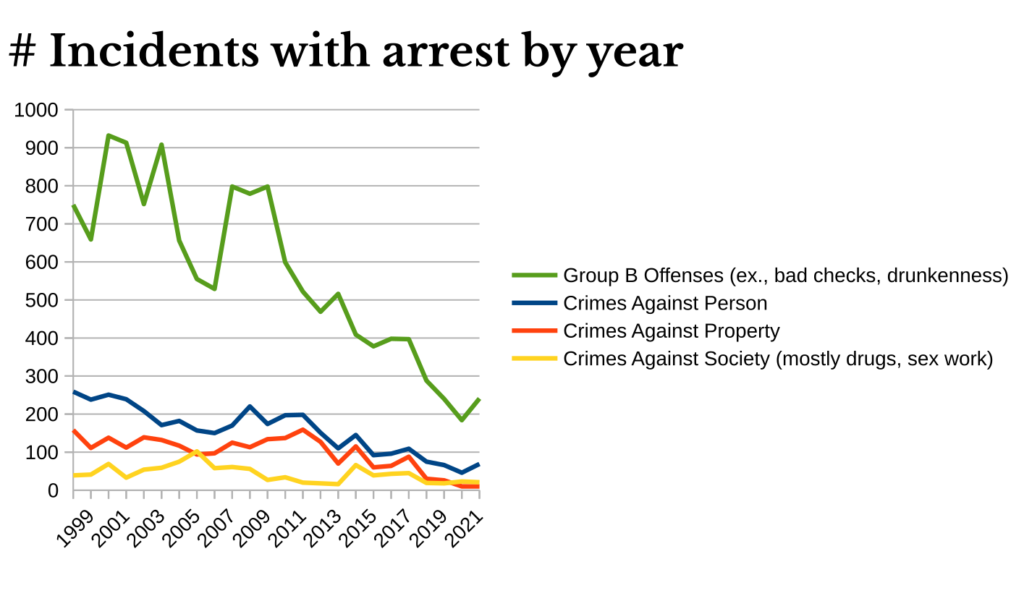This is a timeline of known harms and malfeasance committed by the Greenfield Police Department. This is a working document which we will expand as additional information becomes available. This is NOT an exhaustive list but focuses on those incidents verifiable through public records and newspaper articles.
Why share this list publicly?
- Nowhere else is this information compiled in one place, and it is very hard to find many of these stories. Compiling this information helps us, the public, to identify and acknowledge patterns of misconduct, rather than rely solely on the word of public officials.
- The Mayor and the police department never admit past wrongdoing. Instead they use vague language to talk about ‘community trust’ and very occasionally ‘learning from mistakes.’ How are we supposed to ‘move forward’ as a community if we’re not allowed to talk about what they supposedly learned–those things the police supposedly aren’t going to do anymore?
We present this information in a good faith effort to facilitate community dialogue about policing in Greenfield. We welcome corrections and information on additional incidents. We know there are additional lawsuits and settlements not included here–can you help us find them?
1980s – Officer Susan Heath wins a sexual discrimination lawsuit against GPD. (She wins a second sexual discrimination lawsuit against FCSO in the 1990s.)
1997 – Police Chief David F. McCarthy (Officer Dan McCarthy’s father) appoints his son as a K-9 officer, a position which includes a pay raise. The town manager warns Chief McCarthy that this decision violates state ethics rules which require officials to recuse themselves from decisions that affect the finances of relatives. The town manager warns McCarthy that he cannot participate in any promotional process in which his son is a candidate.
1999-2000 – Chief David F. McCarthy yet again violates state ethics rules by pressuring senior GPD officers and select board members, against their opposition, to support his son to be promoted to sergeant in the next round of promotions. Dan McCarthy is promoted to sergeant in August 2000. In 2002, the Massachusetts State Ethics Commission finds that Chief McCarthy violated ethics rules in his son’s promotion and fines him $4,000, but Sgt. Dan McCarthy retains his promotion.
2004-2011 – Capt. David Guilbault is promoted to Chief of Police. During his tenure he promotes an aggressive use of force policy, resulting in a number of lawsuits and settlements. Increasingly frequent and expensive lawsuits lead to pressure to replace Guilbault.
2010 – Officer Scott West tases driver Oliver Rich of Hatfield seven times, including directly in the groin. Rich is arrested but all charges are dropped. Rich sues GPD in federal court claiming assault and battery and a civil rights violation. In 2013, the city settles out of court for $87,500.
2010 – Sgt. Todd Dodge and Officer Chad Sumner arrest activists who were lawfully filming police and correctional officers, charging them with trespassing, resisting arrest, and wiretapping. The activists are held overnight without access to blankets or pants. They are found innocent on all counts in a 2011 jury trial. Around this time these same activists record Sgt. Dan McCarthy following them around Greenfield, filming their second encounter with him and the mayor. In 2013, one activist files suit against GPD for wrongful arrest, also alleging that while he was in jail overnight his mobile home was towed and searched out of retaliation. In 2015 the city’s insurance settled out of court for $32,500 (more info at CopBlock’s site here).
May 2011 – Capt. Gary Magnan circulates a photo during roll call depicting a woman simultaneously smoking a cigarette and giving oral sex to a man. Magnan would become Provisional Chief from September 2011 until his sudden retirement in May 2012. (See Laura Gordon v. Greenfield court documents.)
2012 – Officer Laura Gordon sues the town of Greenfield for discrimination, sexual harassment, and retaliation for filing complaints about this treatment. While serving in GPD, she was demoted seemingly without cause and denied personal use of cruisers, a privilege offered to every other (male) detective. Complaints in court documents include that male officers regularly viewed pornography while on duty and in meetings and told lewd jokes. After filing her original complaint in 2011, Gordon was subjected to retaliatory disciplinary investigations and actions and denied privileges offered to male officers, such as light duty after an injury. Court documents also note that, shortly after Mayor Martin congratulated Gordon on winning the “permanent position” of court officer, Martin hired his brother-in-law to replace Gordon while she was away on vacation. The case is settled out of court for an undisclosed sum. (See Franklin County Superior Court case 1278CV00117.)
2013 – Mayor Martin hires Robert Haigh, Jr., of Orange PD as Greenfield chief of police.
2014 – GPD posts mugshots and names of people arrested for drug possession on Facebook, publicly shaming people who are merely arrested, not convicted, and struggling with addiction.
2015 – Sgt. Dan McCarthy’s neighbor complains that his young son, who is Black, is disturbed by seeing the large Confederate flag that McCarthy has hanging in his open garage. Public outrage leads to vigils and protests. Despite widespread concern and demands for accountability, Haigh never opens an internal investigation into McCarthy for “Conduct Unbecoming to an Officer” or for any other charge. Haigh had appointed McCarthy as police liaison to the Human Rights Commission, but in light of the controversy HRC stated they would deal directly with Haigh. Haigh refused, keeping McCarthy as liaison through 2019. Throughout the incident and continuing to the present, McCarthy keeps the flag in his garage but keeps the door closed more often. The parents who originally reported the flag to the public are subject to intense homophobic harassment on Facebook and on internet hate sites. This episode, among others, is a key point of evidence in Officer Patrick Buchanan’s discrimination lawsuit against the city of Greenfield, although the City’s lawyers claim that it has no relevance or bearing on the case.
2016 – Anonymous, targeted racial and sexual harassment of city councilors leads to further controversy in Greenfield. Councilor Penny Ricketts, who is African American, receives anonymous demeaning, threatening racist images and messages, causing great personal distress. When city council president Rudy Renaud defends Councilor Ricketts publicly, Renaud also receives nearly identical demeaning, threatening homophobic images and messages. Despite the controversy over McCarthy’s political views and affiliation with the Confederate flag, Chief Haigh assigns McCarthy as the investigator for these incidents of hate and harassment. The investigation finds nothing.
2016 – Officers Soto and McDowell enter the home of a Baystate Franklin nurse and arrest her in her shower (officers claim to be following up on a potential OUI, but no charges were ever filed against her). The nurse later reports that officer Soto threatened her with calling DCF on her family (DCF was in fact called by Soto, found nothing of concern, and reportedly told the nurse that she could sue the City and GPD). Once released, she calls the police station to express anger at Officer Soto for how he treated her. The call is recorded and Lt. Dodge plays it for Chief Haigh, who then tells the hospital that the nurse has made threats against police officers. Baystate fires her. At this point she files a complaint with the PSC. The PSC, which has no legal or administrative support of its own, is concerned about Greenfield’s probable legal liability and refers the case to the Mayor’s office and town counsel. The complaint is “investigated” by Deputy Chief Mark Williams, who finds no evidence of wrongdoing–but the investigation does not claim to address Haigh’s own actions in calling the woman’s employer, suggesting that the City consult their own legal counsel in preparation for a probable lawsuit. No further action is taken.
2016 – Detective Todd Clark over the course of 3 months has 3-4 incidents in which he is found to be inebriated on duty, including a December 16, 2016, incident in which he is dismissed from the courthouse. During these incidents Clark operates a police cruiser and is in possession of a gun. Clark receives only a verbal warning from Chief Haigh and is reassigned from court officer duties. (See Buchanan court documents.)
2017 – In response to Haigh’s repeated, inappropriate assignment of Sgt. McCarthy to civil rights roles, the City Council passes a law ordering the creation of a position of Civil Rights Officer within the Greenfield Police Department, who would be responsible for receiving specialized rights-oriented training, handling civil rights investigations, and serving in key civil rights roles in Greenfield city government. In direct violation of this municipal law, Haigh refuses to appoint a Civil Rights Officer for almost 5 years, only eventually appointing officer Laura Gordon as CRO in 2022. As noted above, McCarthy continues to serve as liaison to the city Human Rights Commission for almost 3 years after this law passed.
2017 – Sgt. James Rode [who had the nickname of “boom boom” for his reckless driving] drives 83mph down High Street to intercept a reckless driver reported elsewhere in Greenfield, even though other units are closer. Rode’s cruiser crashes into a car pulling out of Sanderson St., killing the driver and causing serious injuries to the passenger. Rode is placed on “injured on duty” status (still getting paid) and faces no discipline until later in 2018 when he is finally indicted and found guilty of vehicular homicide. At the same time that he is arraigned on charges of vehicular homicide, he files a lawsuit against a driver he crashed into in 2015.
2017 – Officer Patrick Buchanan files a discrimination lawsuit against Chief Haigh and the City of Greenfield. His co-plaintiff, Lt. Todd Dodge, also alleges whistleblower retaliation for his supporting Buchanan’s complaint as his union representative. The complaint had previously gone before an arbitrator, who decided in favor of Buchanan. (See Hampshire Superior Court docket 1780CV00033, Buchanan v. Haigh & City of Greenfield.)
2017 – Sgt. McCarthy, while on duty, accosts a young man who had had a romantic relationship with McCarthy’s adult daughter and seizes the young man’s phone. When the young man states he will call the police, McCarthy responds “I am the police.” McCarthy says he doesn’t recall if he deleted compromising photos of his daughter from the cell phone. GPD initiates an internal affairs investigation which is dropped after McCarthy’s daughter refuses an interview if her father is not present. (See Buchanan court documents.)
2017 – Baystate Franklin hospital as usual hires GPD to police an authorized nurses’ strike and threatens the arrest of union nurses to prevent them from meeting with their union members who are finishing their shift before a lockout. Baystate uses GPD officers to escort union leaders out of the building. This is in direct violation of federal labor law, but officers follow Baystate executives’ instructions anyway.
2018 – Baystate Franklin hospital yet again hires GPD in the lead up to an authorized nurses’ strike to prevent nurse union leaders from accompanying their union nurses out of the building before a lockout, in flagrant violation of federal labor law. This time, Sgt. McCarthy physically grabs the MNA bargaining unit senior chair Donna Stern at the orders of a Baystate hospital executive. GPD is yet again a willing and eager accomplice in Baystate’s disregard for federal law.
2019 – Greenfield PD receives approval from City Council to leave Civil Service. Plaintiffs in Buchanan v. Haigh & Greenfield asserted that Chief Haigh had sought advice on how to avoid promoting Buchanan, who had scored highest on a civil service promotional exam.
2021 – Chief Haigh requests $5m over 3 years for improvements to the police station. In his request the chief provides very little information about the work being requested. The mayor, Capital Improvements Committee, and Ways & Means all approve this vague request. When members of the public and the full City Council question the high cost and vague and shifting explanations for the work requested, Chief Haigh accuses members of the public of wanting the police to “fail.” The council rejects the capital request and suggests that the Chief and Mayor develop a more detailed plan before re-submitting the request.
April 2022 – Chief Haigh requests $1.9m for improvements to the police station, according to a detailed plan developed with Pacheco-Ross Architects (under a no-bid contract). Members of the Greenfield People’s Budget raise a number of issues with the proposal: in particular, $980k, more than half of the proposed expenditure, is to construct a permanent three-bay “sally port” which includes two wash bays, even though there is a carwash directly across High Street from the police station. Chief Haigh is late for his scheduled appearance at the council meeting because he is at a bar. In the end councilors approve half of the capital request–minus the amount for the sally port, with some councilors suggesting that the Chief explore cheaper ways to provide that function.
May 6, 2022 – Jury finds that Chief Haigh and mayors Martin and Wedegartner of Greenfield discriminated against former officer Patrick Buchanan because of “racial animus,” awarding Buchanan $450k plus interest and legal fees, bringing the total to over $1m (as of the date of the verdict; the award will continue to accrue interest if an appeal is ultimately unsuccessful). When the verdict is announced, Mayor Wedegartner places Chief Haigh and Lt. Todd Dodge on paid administrative leave, for reasons that supposedly have nothing to do with Buchanan vs. Greenfield but with additional explicit instructions for Dodge not to leave his home during his normal shift hours, due to claims he is “under investigation” for lying in the case. Dodge is the only GPD officer to testify on behalf of Buchanan in the case. The judge in the trial later refuses Greenfield lawyers access to sealed testimony out of concern that the city will use it as a basis for retaliation against Dodge. Wedegartner is quoted in The Greenfield Recorder that she believes Haigh will be “completely exonerated” after appeal.
May 2022 – Greenfield City Council votes to reduce the Mayor’s requested FY2023 budget for GPD by $425,000, with some councilors explicitly stating that they wish there to be accountability for officers Haigh and McCarthy for their role in the actions that spurred Buchanan’s lawsuit. The cut is roughly equivalent to the salaries of Haigh and McCarthy. The Fraternal Order of Police union sends a letter to Mayor Wedegartner threatening legal action if she does not veto the council’s reduced budgetary allocation to GPD. (The mayor is not able to veto the council’s budget decisions.) Additionally Acting Chief Gordon posts deceptive/manipulative claims to the department’s official Facebook page, stirring up public fears and leading to threats made against councilors. Also shortly after the budget vote, on 5/31, then-Sgt. David Rice files a public records request (22-225) for all police responses to the homes of four city councilors, with no explanation and with unclear intent.
July 2022 – The Massachusetts Peace Officer Standards and Training Commission (POST Commission) flags two Greenfield officers for review pending further investigation, including Chief Haigh. Out of many thousands of police up for recertification by the POST Commission, only 75 officers were flagged for investigation or decertification. Officers must be certified by the POST Commission in order to serve as sworn officers in the state, although decertified officers are allowed a grace period during which they can appeal.
